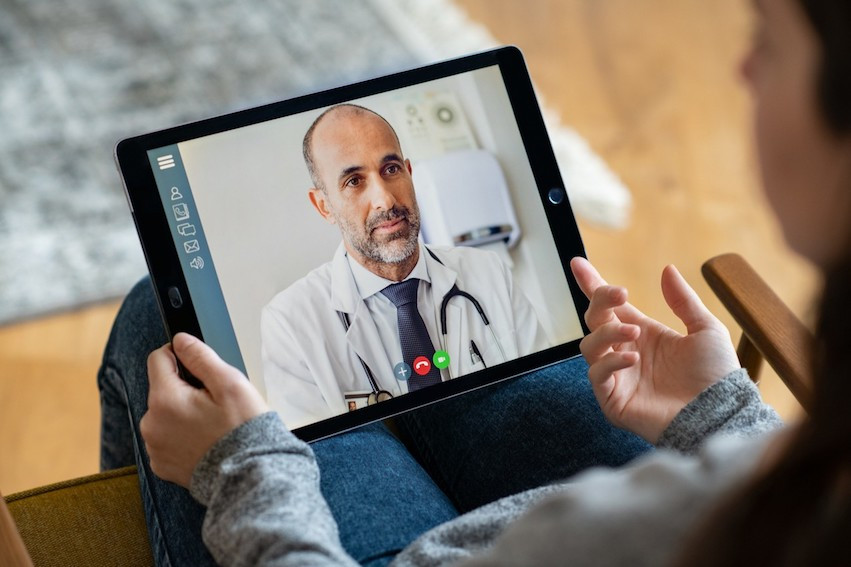The low takeup rate has called into question the long-term viability of two medical teleconsultation systems, one public and one that is privately run.
The Esanté Agency started its Econsult service during the covid-19 lockdown in late March, backed by the National Health Fund (CNS), Luxembourg’s principal medical insurer.
Drop in digital appointments
“We went from 0% to 100% teleconsultations during the crisis,” said Caroline Marx, a GP in Luxembourg City. Since the reopening of her surgery near the central train station in early May, digital appointments have only represented 10 to 20% of consultations. “There are two phenomena,” she observed. “First, cross-border workers who continue to telework, and therefore no longer come to consult on site. And then some patients are still afraid.”
Even if virtual visits are useful, Dr Marx does not want them used uniformly. “We cannot do clinical examinations, take temperature, assess heartbeat. Before prescribing antibiotics for a sore throat, for example, I always do a test which cannot be done remotely,” she said.
At Dr Jean-Marc Weber’s practice, around 15% of consultations are also being done remotely. “The pandemic has made a difference,” he said. “Teleconsultation has some practical advantages for patients, who waste less time on journeys. It does not replace consultation in the majority of cases, but it would be interesting to keep this practice in the post-crisis period,” he commented.
There were similar rates recorded at the medical practice of Dr Jérémy Joiris and Dr Armin Beslija. The majority of teleconsultations are done with “patients who still cannot travel and who are afraid of going out” and for “routine consultations with patients whom the doctors know well,” according to their secretary.
Private platform
All of these doctors are on the Doctena medical booking platform. According to its CEO, Patrick Kersten, there have been “nearly 20,000 teleconsultations” on its system, which likewise launched during the lockdown period.
After hitting a peak of 100 hours of teleconsultation each day, “we went down to 25-30 hours per day”, said Kersten. He would like to continue the service after the crisis ends. “It was a project that we had already identified, but which was put on hold because of reimbursement issues.”
The billing code used for teleconsultations is specifically tied to the covid-19 outbreak, but Kersten said he hoped it would be made permanent. “Luxembourg was already behind its neighbours in this matter.”
Public policy question
The Econsult platform has similarly seen usage decline by a notable margin. Weekly teleconsultations dropped from 1,000 a week during the lockdown to around a 100 in recent weeks. “As of mid-June, we have 670 registered doctors and 6,800 appointments booked,” the Esanté Agency said.
While an official said that “it is not unimaginable” that teleconsultation services will remain available over the long haul, the agency could not confirm its plans this week. Much depends on whether or not the CNS continues to cover online appointments.
Originally published by Paperjam and adapted for Delano
